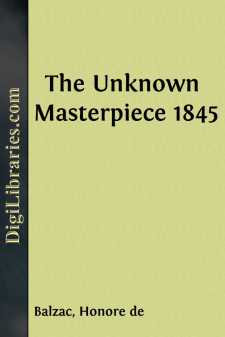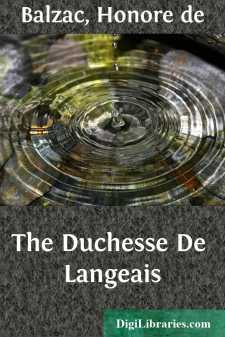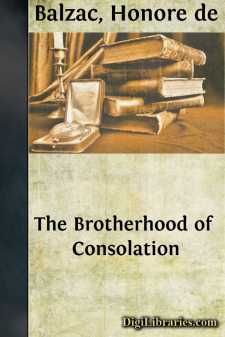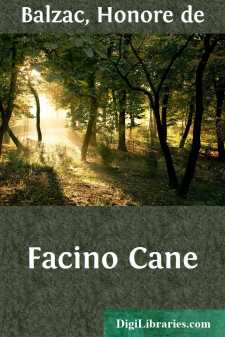Categories
- Antiques & Collectibles 13
- Architecture 36
- Art 48
- Bibles 22
- Biography & Autobiography 813
- Body, Mind & Spirit 142
- Business & Economics 28
- Children's Books 17
- Children's Fiction 14
- Computers 4
- Cooking 94
- Crafts & Hobbies 4
- Drama 346
- Education 46
- Family & Relationships 57
- Fiction 11829
- Games 19
- Gardening 17
- Health & Fitness 34
- History 1377
- House & Home 1
- Humor 147
- Juvenile Fiction 1873
- Juvenile Nonfiction 202
- Language Arts & Disciplines 88
- Law 16
- Literary Collections 686
- Literary Criticism 179
- Mathematics 13
- Medical 41
- Music 40
- Nature 179
- Non-Classifiable 1768
- Performing Arts 7
- Periodicals 1453
- Philosophy 64
- Photography 2
- Poetry 896
- Political Science 203
- Psychology 42
- Reference 154
- Religion 513
- Science 126
- Self-Help 84
- Social Science 81
- Sports & Recreation 34
- Study Aids 3
- Technology & Engineering 59
- Transportation 23
- Travel 463
- True Crime 29
Sort by:
by:
Honore de Balzac
MASSIMILLA DONI As all who are learned in such matters know, the Venetian aristocracy is the first in Europe. Its Libro d'Oro dates from before the Crusades, from a time when Venice, a survivor of Imperial and Christian Rome which had flung itself into the waters to escape the Barbarians, was already powerful and illustrious, and the head of the political and commercial world. With a few rare...
more...
by:
Honore de Balzac
LOUIS LAMBERT Louis Lambert was born at Montoire, a little town in the Vendomois, where his father owned a tannery of no great magnitude, and intended that his son should succeed him; but his precocious bent for study modified the paternal decision. For, indeed, the tanner and his wife adored Louis, their only child, and never contradicted him in anything. At the age of five Louis had begun by reading...
more...
by:
Honore de Balzac
I—GILLETTE On a cold December morning in the year 1612, a young man, whose clothing was somewhat of the thinnest, was walking to and fro before a gateway in the Rue des Grands-Augustins in Paris. He went up and down the street before this house with the irresolution of a gallant who dares not venture into the presence of the mistress whom he loves for the first time, easy of access though she may be;...
more...
by:
Honore de Balzac
CHAPTER I. SERAPHITUS As the eye glances over a map of the coasts of Norway, can the imagination fail to marvel at their fantastic indentations and serrated edges, like a granite lace, against which the surges of the North Sea roar incessantly? Who has not dreamed of the majestic sights to be seen on those beachless shores, of that multitude of creeks and inlets and little bays, no two of them alike,...
more...
by:
Honore de Balzac
THE DESERTED WOMAN In the early spring of 1822, the Paris doctors sent to Lower Normandy a young man just recovering from an inflammatory complaint, brought on by overstudy, or perhaps by excess of some other kind. His convalescence demanded complete rest, a light diet, bracing air, and freedom from excitement of every kind, and the fat lands of Bessin seemed to offer all these conditions of recovery....
more...
by:
Honore de Balzac
THE FAIR IMPERIA The Archbishop of Bordeaux had added to his suite when going to the Council at Constance quite a good-looking little priest of Touraine whose ways and manner of speech was so charming that he passed for a son of La Soldee and the Governor. The Archbishop of Tours had willingly given him to his confrere for his journey to that town, because it was usual for archbishops to make each...
more...
by:
Honore de Balzac
I. AN AMBUSCADE Early in the year VIII., at the beginning of Vendemiaire, or, to conform to our own calendar, towards the close of September, 1799, a hundred or so of peasants and a large number of citizens, who had left Fougeres in the morning on their way to Mayenne, were going up the little mountain of La Pelerine, half-way between Fougeres and Ernee, a small town where travellers along that road...
more...
by:
Honore de Balzac
THE DUCHESSE OF LANGEAIS In a Spanish city on an island in the Mediterranean, there stands a convent of the Order of Barefoot Carmelites, where the rule instituted by St. Theresa is still preserved with all the first rigor of the reformation brought about by that illustrious woman. Extraordinary as this may seem, it is none the less true. Almost every religious house in the Peninsula, or in Europe for...
more...
by:
Honore de Balzac
I. THE MALADY OF THE AGE On a fine evening in the month of September, 1836, a man about thirty years of age was leaning on the parapet of that quay from which a spectator can look up the Seine from the Jardin des Plantes to Notre-Dame, and down, along the vast perspective of the river, to the Louvre. There is not another point of view to compare with it in the capital of ideas. We feel ourselves on the...
more...
by:
Honore de Balzac
FACINO CANE I once used to live in a little street which probably is not known to you—the Rue de Lesdiguieres. It is a turning out of the Rue Saint-Antoine, beginning just opposite a fountain near the Place de la Bastille, and ending in the Rue de la Cerisaie. Love of knowledge stranded me in a garret; my nights I spent in work, my days in reading at the Bibliotheque d'Orleans, close by. I lived...
more...











